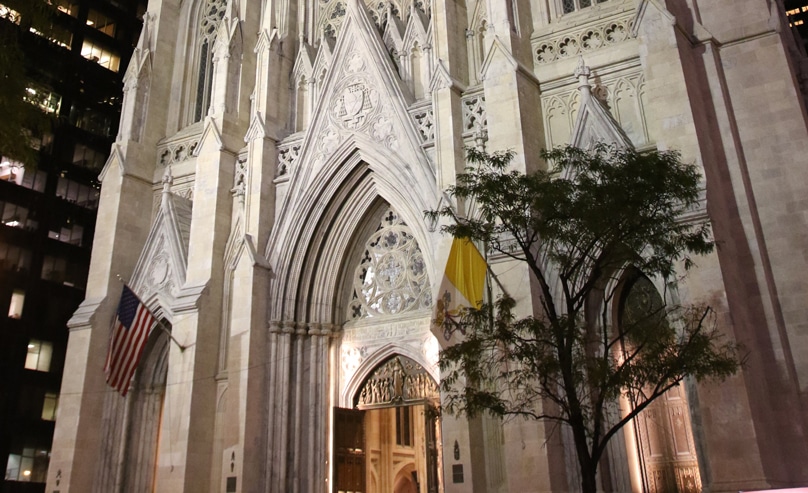
A few weeks ago, a funeral was held for Cecilia Gentili in New York’s St Patrick’s Cathedral.
The funeral was a cause of scandal and great controversy for several reasons.
First, Gentili was a publicly professed atheist whose stand-up comedy acts included jokes about blasphemous sex acts far too vulgar to put in print.
Second, Gentili spent a great number of years lobbying in favour of laws that the Church opposed, including—at the time of Gentili’s death—the full legalisation of prostitution and solicitation.
Third, one of the many eulogies at the funeral proclaimed Gentili (in Spanish and English) to be “this whore, this great whore, Saint Cecilia, mother of all whores,” and this was met by rapturous applause and a standing ovation from the congregation.
During the same eulogy, two male speakers engaged in a kiss while still on the sanctuary.
Fourth, and I want to say least importantly in terms of scandal, Gentili was a biological man who had, for many years, identified as a woman.
In the days following, the cathedral dean, Fr Enrique Salvo, issued a statement saying that the cathedral “only knew that family and friends were requesting a funeral Mass for a Catholic, and had no idea our welcome and prayer would be degraded in such a sacrilegious and deceptive way.” He also confirmed a Mass of reparation had been offered.
Some have suggested the cathedral staff either must have known of Gentili’s notoriety and did not think it a problem or were completely negligent in doing basic preparation for a funeral, such as meeting with the family and asking about the life and faith of the deceased. What’s more, an obituary published in the New York Times three days before the funeral would have given the cathedral enough information about the deceased. Those organising the funeral insist they were not deceptive, and simply wanted to hold the funeral for an icon in an iconic venue.
I imagine the truth of the situation lies somewhere in the middle. But rather than focusing what happened in this particular case, I think Gentili’s funeral should be an invitation to the church more broadly to consider whether it is time to come up with some specific protocols and procedures in the event more funerals are used as the next frontier in the culture wars.
Even if a priest does his due diligence prior to a funeral, there is no guarantee that he isn’t going to show up on the day to a church full of activists who are there not in prayer, but protest.
Like Gentili’s funeral, it could be about transgender rights and sex work. Given the state of end-of-life laws here in Australia, it could be used as an event to reject church teaching on euthanasia and assisted suicide.
The priest celebrating Gentili’s funeral realised something was amiss prior to the funeral commencing and made the decision that there would be no funeral Mass, just a simple funeral liturgy. It was prudent thinking on his part, but perhaps bishops should also speak with their priests about strategies they might use in such situations and give them the confidence that they will have his support if they need to use them.
Perhaps, like in Gentili’s case, a short liturgy might be used. This would not prevent a private Mass for the repose of the soul of the deceased being offered later.
Maybe Mass might still be celebrated but Holy Communion not distributed if things seem amiss or go awry—if such a thing is allowed under liturgical and canonical norms.
Maybe, when a funeral is requested and the deceased or their family is not known to the parish, some additional questions might be asked, or eulogies omitted, minimised or pre-submitted. This might especially be necessary for funerals requested at the diocesan cathedral or other places of significance.
This isn’t about denying people the graces of a funeral Mass. I think the church should be generous with funerals because we are all sinners in need of God’s mercy. But this generosity shouldn’t extend to those who reject the existence of God and who instead want to use our churches and clergy as props in a narcissistic pantomime, nor for those who want to co-opt our liturgies as weapons in the culture wars.
